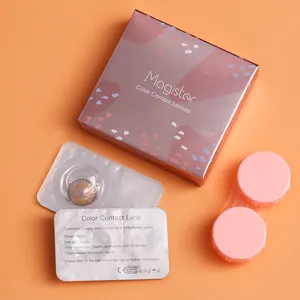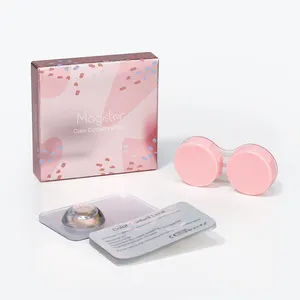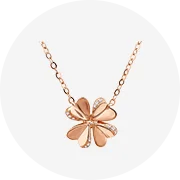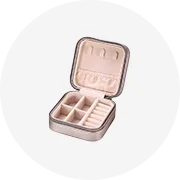
Best Price 1.56 Index Aspheric Lenses Blue Light SHMC UV420 EMI Defending Coating Resin Anti-glare Eyeglass Lens


Contact Lenses Eyes OEM Box Custom Logo Hidrocor 13 Color Contacts Wholesale Natural Color Eye Lens For Fresh Look Solotica














Contact lenses are thin, curved lenses designed to sit on the surface of the eye. They serve as an alternative to eyeglasses, enhancing vision for those with refractive errors such as myopia (nearsightedness), hyperopia (farsightedness), astigmatism, or presbyopia. Unlike glasses, contact lenses move with your eyes to offer a natural field of view, reduce distortions, and eliminate the need for bulky frames.
Contact lenses are made from various materials that allow oxygen to pass through to the cornea, ensuring eye health and comfort. The principle behind how contact lenses work is simple: they alter the path of light entering the eye to focus directly on the retina, which corrects vision. To achieve this, each lens must have a specific curvature, thickness, and diameter, prescribed by an eye care professional based on a thorough eye examination.
The use of contact lenses spans across demographics, appealing to those who engage in sports, lead active lifestyles, or simply prefer the aesthetic of not wearing glasses. They are available in different forms, including daily disposables, extended wear, and even cosmetic lenses that change the appearance of the eyes. With proper care and regular check-ups, contact lenses can be a safe and effective way to correct vision for most people.
The realm of contact lenses is vast and varied, with multiple types designed to cater to different vision needs and lifestyle preferences:
Soft Contact Lenses: These are made from soft, flexible plastics that allow oxygen to pass through to the cornea. They are comfortable and easy to adapt to, making them a popular choice for daily wear.
Rigid Gas Permeable (RGP) Lenses: RGP lenses are more durable than soft lenses and can offer sharper vision. They are often prescribed for individuals with astigmatism or certain types of eye conditions.
Extended Wear Lenses: Some soft contact lenses are designed for extended wear and can be worn continuously for up to a week or longer. However, they require careful monitoring by an eye care professional due to increased risk for infections.
Daily Disposable Lenses: These lenses are used once and then discarded. They are convenient because they do not require cleaning or storage but can be more expensive over time.
Toric Lenses: Designed specifically for people with astigmatism, toric lenses have different powers in various lens meridians to correct the irregular shape of the cornea.
Multifocal Lenses: These lenses contain different lens powers to correct presbyopia and allow for clear vision at all distances.
Cosmetic and Prosthetic Lenses: These are designed purely for aesthetic purposes—to enhance or change one's eye color—or to mask disfigurations.
When businesses consider purchasing contact lenses in bulk for commercial use or reselling purposes on platforms like Alibaba.com, several factors come into play:
The first consideration is the type of contact lens. Businesses should evaluate their target market's needs—whether it's daily disposables sought after by busy professionals or extended wear options preferred by customers who don't want the hassle of regular removal. Identifying customer preferences is crucial in selecting a product mix that will sell well.
Material is another pivotal factor; some consumers may prefer the comfort of soft lenses while others might need RGP lenses due to specific eye conditions. Offering a range that includes both could cater to a wider audience.
Moreover, considering special features like UV protection or moisture-retaining capabilities could distinguish your offerings from competitors. Businesses should also assess whether there's demand for cosmetic or prosthetic lenses among their customer base.
Lastly, businesses must ensure that they partner with reputable suppliers who meet industry standards and regulations for contact lens manufacturing. This ensures quality products that are safe for end-users—a critical aspect when dealing with medical devices like contact lenses.
Alibaba.com stands as a comprehensive marketplace that connects businesses with a diverse range of wholesale contact lens suppliers from around the world. With its expansive selection tailored to meet various consumer needs, Alibaba.com provides a unique opportunity for businesses looking to source quality eyewear products efficiently and effectively.
The platform's global outreach ensures access to a multitude of suppliers offering various types of contact lenses—from daily disposables to multifocal solutions—ensuring businesses can find products that resonate with their customer base. Furthermore, Alibaba.com's Trade Assurance service reinforces buyer confidence by securing payments until delivery is confirmed.
By leveraging Alibaba.com's user-friendly interface and communication tools, buyers can negotiate with suppliers in their local language and facilitate smooth transactions. This seamless integration of services makes Alibaba.com an ideal destination for businesses aiming to expand their inventory with reliable contact lens products without geographical constraints.
Offering a diverse selection of contact lenses, including daily disposables, extended wear, and toric lenses, can cater to a wide range of customer needs and preferences, increasing customer satisfaction and potentially boosting sales.
Partnering with reputable manufacturers and suppliers who provide documentation of their compliance with health and safety standards is essential for ensuring the contact lenses you source meet regulatory requirements.
The material choice should depend on your target market's preferences, with options ranging from soft hydrogel lenses for comfort to rigid gas permeable lenses for enhanced vision correction in customers with specific eye conditions.
Multifocal contact lenses cater to an aging population experiencing presbyopia, expanding your customer base to include older individuals who require vision correction at multiple distances.
Yes, cosmetic contact lenses have a niche market among consumers looking to enhance their eye color or for special occasions, which can be a profitable addition to your product range if there's consumer interest.
Proper storage conditions include maintaining a controlled environment away from extreme temperatures and humidity, as well as handling the lenses with care to ensure their integrity and sterility.
Understanding and monitoring the expiration dates of contact lenses is crucial for inventory management to ensure that products sold to customers are within their usable lifespan.
Features such as UV protection, high oxygen permeability, and built-in moisture retention are important selling points that can appeal to businesses looking for high-quality products for their customers.
Yes, eco-friendly options can attract environmentally conscious consumers and set your business apart from competitors who do not offer sustainable eyewear solutions.
Package quantity should align with consumer buying habits; offering both smaller packs for occasional users and larger bulk packs for regular users can accommodate varying customer needs.
Factors such as lens material, thickness, and proper maintenance by the end-user all contribute to the durability and lifespan of contact lenses.
Custom packaging can provide brand differentiation, allow for personalized marketing messages, and improve customer perception of quality, potentially increasing sales.